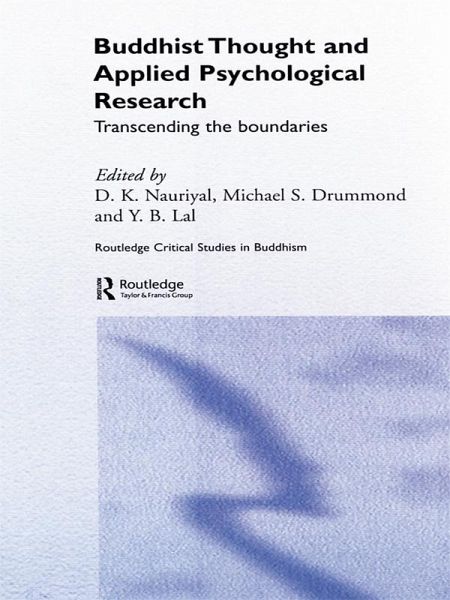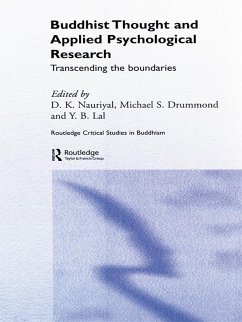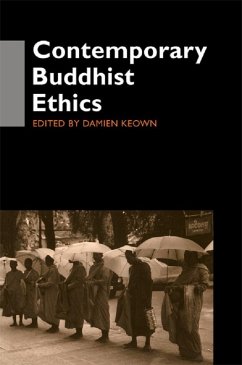
Buddhist Thought and Applied Psychological Research (eBook, ePUB)
Transcending the Boundaries
Redaktion: Nauriyal, D. K.; Lal, Y. B.; Drummond, Michael
Versandkostenfrei!
Sofort per Download lieferbar
55,95 €
inkl. MwSt.
Weitere Ausgaben:

PAYBACK Punkte
28 °P sammeln!
Written by leading scholars and including a foreword by the Dalai Lama, this book explores the interface between Buddhist studies and the uses of Buddhist principles and practices in psychotherapy and consciousness studies. The contributors present a compelling collection of articles that illustrate the potential of Buddhist informed social sciences in contemporary society, including new insights into the nature of human consciousness.The book examines the origins and expressions of Buddhist thought and how it is now being utilized by psychologists and social scientists, and also discusses the...
Written by leading scholars and including a foreword by the Dalai Lama, this book explores the interface between Buddhist studies and the uses of Buddhist principles and practices in psychotherapy and consciousness studies. The contributors present a compelling collection of articles that illustrate the potential of Buddhist informed social sciences in contemporary society, including new insights into the nature of human consciousness.
The book examines the origins and expressions of Buddhist thought and how it is now being utilized by psychologists and social scientists, and also discusses the basic tenets of Buddhism and contemporary Buddhist-based empirical research in the psychological sciences. Further emphasis is placed on current trends in the areas of clinical and cognitive psychology, and on the Mahayana Buddhist understanding of consciousness with reference to certain developments in consciousness studies and physics.
A welcome addition to the current literature, the works in this remarkable volume ably demonstrate how Buddhist principles can be used to develop a deeper understanding of the human condition and behaviours that lead to a balanced and fulfilling life.
The book examines the origins and expressions of Buddhist thought and how it is now being utilized by psychologists and social scientists, and also discusses the basic tenets of Buddhism and contemporary Buddhist-based empirical research in the psychological sciences. Further emphasis is placed on current trends in the areas of clinical and cognitive psychology, and on the Mahayana Buddhist understanding of consciousness with reference to certain developments in consciousness studies and physics.
A welcome addition to the current literature, the works in this remarkable volume ably demonstrate how Buddhist principles can be used to develop a deeper understanding of the human condition and behaviours that lead to a balanced and fulfilling life.
Dieser Download kann aus rechtlichen Gründen nur mit Rechnungsadresse in A, B, BG, CY, CZ, D, DK, EW, E, FIN, F, GR, HR, H, IRL, I, LT, L, LR, M, NL, PL, P, R, S, SLO, SK ausgeliefert werden.













